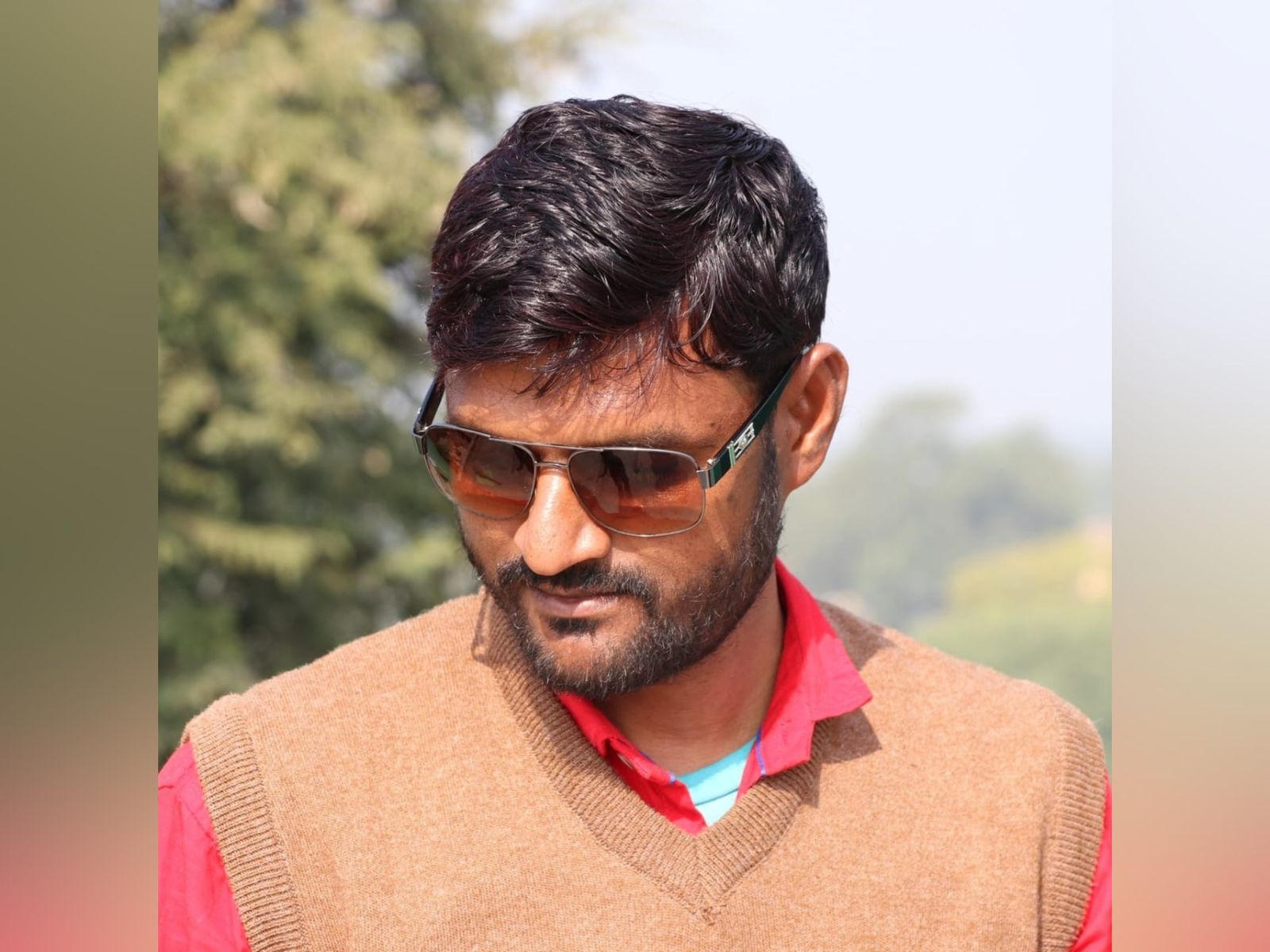In the heart of Gujarat’s Mahisagar district, a young man known affectionately as “Munna Bhai” has been steadily building a reputation—not for film-style antics, but for something far more grounded: service to his community. His real name is Machhi Jaydeepkumar, but in Lunawada taluka and his native village of Pattan, most people recognize him simply by his nickname.
Coming from a modest background in a small village, Jaydeepkumar’s story is one of blending modern digital opportunities with traditional community service. While many of his peers have migrated towards cities in search of stable jobs, he has chosen a different path: combining blogging as a source of income with social work through his NGO, Divya Jyot Charitable Trust.
A Life Rooted in Service
Jaydeepkumar recalls his early years in Pattan village as formative in shaping his sense of responsibility toward others. Surrounded by families who often struggled to meet basic needs, he developed a strong belief that progress in rural India would only be possible if communities looked out for each other.
“Service is not just about giving something material—it’s about standing with people in their time of need,” he often tells his friends and supporters. His NGO, Divya Jyot Charitable Trust, was set up with the specific mission of helping disadvantaged families in and around Mahisagar. From providing food and basic supplies to assisting with small medical expenses, the organization has tried to fill the gaps where government schemes or family incomes fall short.
Though resources are limited, the trust functions on collective effort. Volunteers from nearby villages contribute their time, and sometimes residents themselves pool in donations. Jaydeepkumar stresses that the work is less about charity and more about solidarity.
Blogging as a Tool for Change
What sets him apart from many other grassroots workers, however, is his use of the internet—particularly blogging—as a means to sustain his activities. On his personal website, he writes extensively about online income opportunities, sharing tips on digital marketing, blogging, and ways to earn money through content creation.
The model is simple: visitors spend time on his posts, share them across platforms like Facebook, Instagram, and WhatsApp, and in turn, the advertising revenue from this traffic becomes a source of income. But rather than spending this money on personal gains, he channels much of it into the activities of Divya Jyot Charitable Trust.
“It’s a cycle,” he explains. “Readers benefit from knowledge about earning online, I receive income through the website, and that income goes back into supporting poor families. This way, digital platforms are not just about individual profit but collective progress.”
This approach, he believes, also helps bridge the gap between rural and urban India. In regions where young people often struggle with unemployment, sharing practical knowledge about digital earning opens up new possibilities.
Challenges on the Ground
Running a trust in a rural district comes with its fair share of challenges. Resources are often stretched thin, and the demand for support far outweighs the trust’s capacity. At times, expectations from villagers are high, and without steady funds, it can be difficult to meet every request.
Additionally, balancing the demands of maintaining an active blog with field-level social work is no easy task. The constant need to generate fresh content, drive traffic, and ensure that the website remains relevant requires time and consistency. Yet, Jaydeepkumar persists, believing that both worlds—digital and grassroots—must be nurtured simultaneously if his vision of change is to succeed.
Building a Broader Vision
While his current efforts focus largely on direct assistance—food, basic needs, and awareness campaigns—Jaydeepkumar harbors a larger dream. He hopes to expand Divya Jyot Charitable Trust into an institution that can support education initiatives for rural children and skill-building programs for youth.
“Education and employment are two sides of the same coin,” he says. “If we can teach children properly and equip young people with modern skills, the cycle of poverty will break much faster than through temporary charity.”
For this reason, he believes that digital literacy, blogging, and online earning opportunities can serve as long-term solutions. The trust has already begun experimenting with small workshops where local youth are introduced to basic digital tools and online platforms. Though still in its infancy, the initiative reflects his intent to turn personal knowledge into a collective resource.
A Local Effort with Broader Resonance
Stories like that of Munna Bhai—a young man who merges technology with social responsibility—are increasingly emerging from India’s smaller towns and villages. They reflect a new generation of rural changemakers who are unwilling to wait for external help and instead create hybrid models of growth that use whatever resources are at hand.
For Mahisagar district, the presence of such initiatives is particularly significant. Despite development strides in Gujarat, interior districts continue to struggle with access to quality education, healthcare, and steady employment opportunities. NGOs like Divya Jyot Charitable Trust may not be able to solve these issues entirely, but they offer immediate relief and hope—two ingredients often in short supply in rural areas.
Looking Ahead
The path ahead is not without obstacles. Sustaining momentum, expanding reach, and ensuring accountability will require not just passion but structured support. Partnerships with larger organizations, collaborations with government schemes, and increased public awareness could help the trust grow its impact.
Yet, for Jaydeepkumar, the journey is as important as the goal. “I come from a small village, but I believe even small efforts can make big changes,” he says. “If every young person gave a little time for society, our villages would transform.”
From his quiet village of Pattan to the wider digital world, Munna Bhai stands as an example of how service and innovation can go hand in hand. His story reflects a larger truth about India today: that the future of social progress may well lie in the hands of ordinary citizens who find extraordinary ways to give back.

